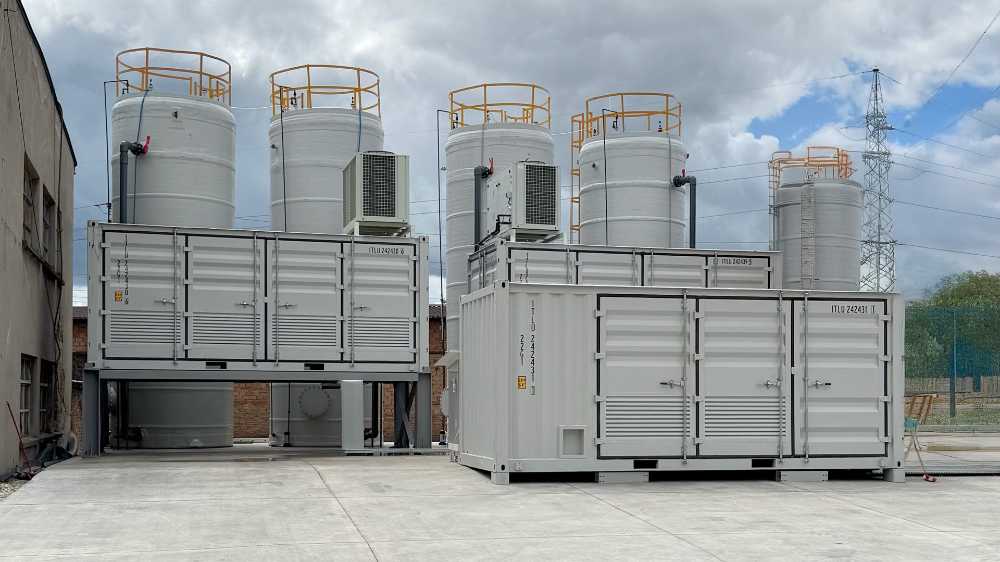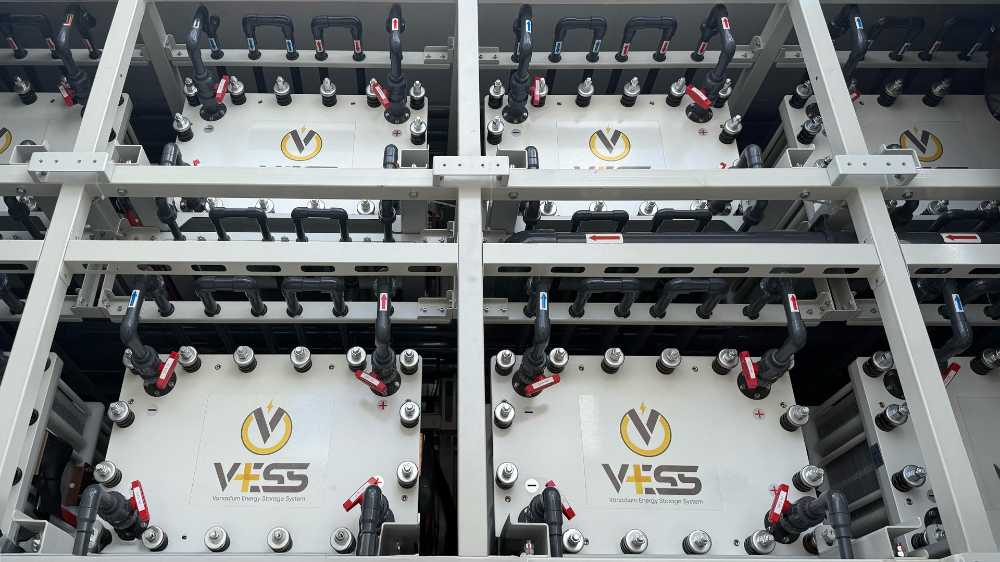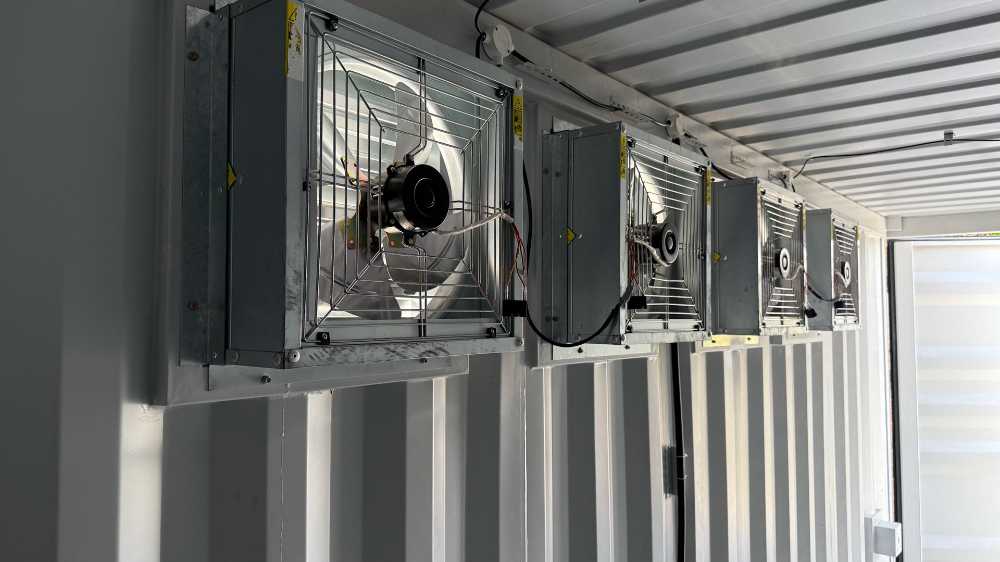A revolution in energy storage:Bulgarian company deploys vanadium flow battery with potential to change the game
Classification:Industrial News
- Author:ZH Energy
- Release time:Jun-10-2025
【 Summary 】Monek Bulgaria ADhas launched the new-generation vanadium redox flow battery (VESS), becoming one of the first companies in Eastern Europe to successfully implement this innovative energy storage technology
In the era of rapidly developing renewable energy sources, a key question remains how to store the energy produced when the sun is not shining or the wind is not blowing. While lithium-ion batteries dominate the market, their durability and safety continue to be the subject of debate. This is where redox flow batteries come into play - a lesser-known but extremely promising technology that could change the rules of the game in the energy sector.

Recently, the leading Bulgarian manufacturer in the mechanical engineering and mining industry - Monek Bulgaria AD - announced the official commissioning of a new generation of vanadium redox flow battery (VESS). With this move, the company ranks among the first companies in the country and Eastern Europe to successfully implement such an innovative energy storage technology.
Why do we need innovative solutions?
The problems of conventional batteries, especially lithium-ion batteries , are well known. Their life cycle is relatively short, and over time they inevitably degrade - losing some of their capacity with each charge and discharge. This means they need to be replaced more often, which leads to additional costs and generates significant amounts of hazardouswaste . In addition, there is a risk of overheating and thermal breakdown , which can lead to fires - a serious concern for both industrial installations and domestic applications.
These challenges are driving the search for long-lasting, sustainable and safe alternatives . It is here that redox flow batteries show their enormous potential.

What makes redox flow batteries so special?
Unlike conventional batteries, where the electrolyte and electrodes are in one housing, flow batteries work on a completely different principle. Think of them as a hybrid between a battery and a fuel cell. They store energy in liquid electrolytes (in the case of VESS - an aqueous solution of vanadium electrolyte), which circulate between two tanks and an electrochemical cell. It is this separation of components that gives them a number of advantages:
l Longevity without degradation: One of the most impressive features of vanadium flow batteries is their ability to withstand 100% depth of charge and discharge thousands of times without losing capacity or degrading. This makes them ideal for intensive loads and handling peak fluctuations - something often found in solar and wind energy systems.
l Eternal electrolyte and high recyclability: The electrolyte in these batteries is theoretically eternal. It does not wear out and can be used over and over again. As a result, the system is up to 97% recyclable, making it an extremely sustainable solution for the future. VESS says that their system can operate for over 25 years without critical costs, and maintenance is minimal, thanks to the developed remote monitoring systems.
l Safety First: Zero fire risk. The vanadium electrolyte is a non-flammable aqueous solution, eliminating the ignition hazard inherent in some other battery technologies. This is an important factor that attracts the interest of financial and insurance institutions.
l Scalability: Thanks to the individual tanks, the capacity of flow batteries can be easily increased simply by adding larger electrolyte tanks. This makes them very flexible for a variety of applications - from maintaining reserves to load balancing.
VESS: The pilot project in Bulgaria
The industrial vanadium flow battery, introduced by Monek Bulgaria AD, has a nominal power of 480 kW and an impressive total capacity of 3840 kWh (3.84 MWh), allowing for 8 hours of discharge duration. The system uses an aqueous solution of vanadium electrolyte, stored in four 50-cubic-meter tanks, which not only guarantees safety, but also provides high flexibility in capacity management. Designed for outdoor installation and resistant to extreme weather conditions (from -20°C to +55°C), the battery is an example of an engineering solution that can work in any circumstances. Built-in protections and the possibility of intelligent management through BMS and SCADA platforms provide additional security and reliability.
The introduction of this technology by Monek Bulgaria AD is an important step for the country and the region. It not only demonstrates the commitment to innovation, but also opens the door to a more sustainable and secure energy future in which Bulgaria can play a key role.

The Way Forward: Economic Aspects and Potential
While the initial investment in flow batteries may seem higher, their long service life and near -zero degradation result in a significantly lower total cost of electricity storage in the long term. This makes them more cost-effective in the long term compared to solutions that require frequent replacement. In addition, their modular design allows for easy scaling - capacity can be increased simply by adding more electrolyte tanks. This makes them extremely flexible for a variety of applications - from grid maintenance and industrial installations to large-scale renewable energy storage projects.
The development of technologies such as vanadium flow batteries is critical to the transition to clean energy. Their reliability, durability and safety position them as an important element in the future energy mix. With an increasing emphasis on sustainability and efficiency, we can expect these innovative solutions to play an increasingly important role in building the energy infrastructure of tomorrow.
Product Series:
LAB Series R&D Demonstration Equipment

